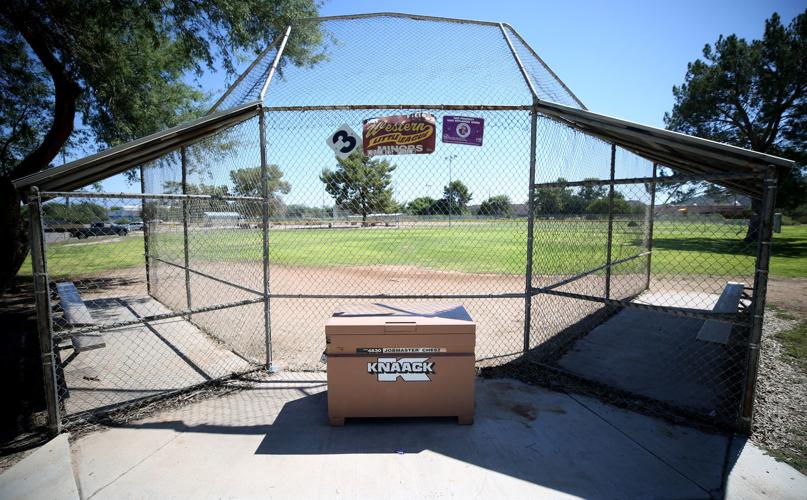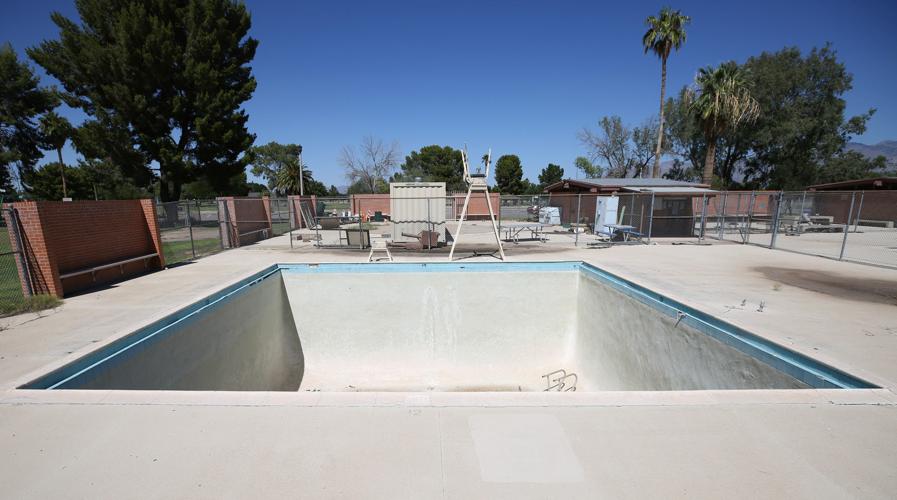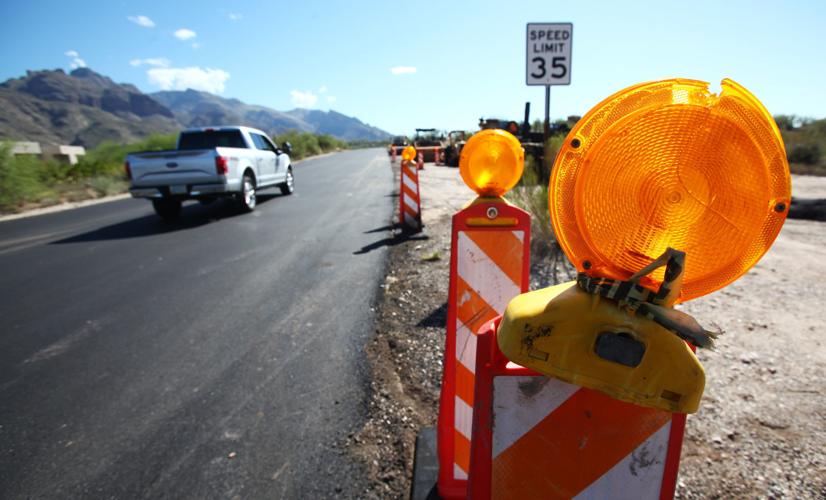Tucson voters decided to invest more money in the city’s parks and rejected changes to the city’s election schedule, while voters across the county rejected a historic bond for countywide road repairs, early voting results showed.
Proposition 407, a city-backed plan to spend $225 million on parks and trails over the next 10 years, was prevailing Tuesday night, with 55 percent of the vote.
The bond package won’t fix the entire city’s parks and recreation system, but because of its limited size, it also won’t raise taxes. The debt will instead be sold as the city pays off old bonds.
Prop. 407 will provide improvements to 100 of the city’s 128 parks, along with new paths for pedestrians and bicyclists. Nearly $128.2 million would be set aside for aquatic facilities and park improvements for recreational centers, sports fields and lighting.
Another $24.6 million will go towards building elongated parks, designed for bicyclists and pedestrians, that connect parts of town, including Reid Park and downtown Tucson.
Roughly $5 million will be set aside for minor improvements to the Randolph Park and El Rio golf courses.
Another $10.7 million will be spent revamping Joaquin Murrieta Park on Tucson’s west side, equipping it with a full-sized baseball field, two fenced-in slow-pitch softball fields, additional fields for Little League baseball, a new pool and splash pad and a new dog park. The package will also add new playground equipment throughout the city.
Prop. 407 stemmed from the city’s Parks Master Plan, which was adopted by the City Council in 2016. It’s based on several dozen master plans for individual parks.
Tucson closed some parks and city pools at the height of the recession instead of spending funds to maintain them. While many pools won’t reopen, many will be replaced with splash pads, which are cheaper to maintain, use less water, accommodate more people and don’t require a lifeguard.
There was no formal, organized opposition to the proposition.
COUNTY ROAD BOND
Early election results showed only 44 percent of voters supported Proposition 463, a $430 million countywide road bond.
If the measure had passed, it would have represented the single largest investment in major street repairs in the history of Pima County. But it still wouldn’t have been enough money to fix every road in the greater Tucson area. A conservative estimate puts that price tag at $1.8 billion.
Some officials were reluctant to discuss what they’d do with the funding if Prop. 463 passed, and restrictions were set as to how the funds could be used. The money could have only be spent on significant road work, which would include, at minimum, resurfacing a road with a new layer of asphalt to rebuilding the entire road from the ground up. The proposition also would have addressed the worst roads first.
The road bond wouldn’t have changed the county’s secondary tax rate, but rather would have extended the current rate for the next 15 years.
Under the package, Tucson would have received nearly $200.7 million in funding and Pima County would have gotten less than $167 million for unincorporated areas. Marana would have received $26.1 million, Oro Valley would have gotten less than $23.1 million, and Sahuarita was slated to receive about $12.2 million.
Had the bond package passed, the city would have used a pre-existing community board that has made decisions where to spend previous taxpayer-approved initiatives, and Pima County would have relied upon its road-conditions index to decide where to spend the money.
Oro Valley officials said the money would have been used to fix aging roads, saying that unlike other cities and towns, Oro Valley doesn’t have millions of dollars in unfunded street repairs.
Marana officials were tight-lipped on how they would have spent the money, saying that the town’s roads are in good condition.
The bond was endorsed by a number of high-profile community groups, including the Tucson Metro Chamber, the Arizona Transportation Builders Association, the Southern Arizona Leadership Council and the executive committee of the Green Valley Council. Opposition to the bond included a group called Stop Prop 463 Road Bonds, which argued that Pima County has a poor track record of properly using the hundreds of millions of dollars in Highway User Revenue Funds and Vehicle License Tax money it has received.
Officials opposing the bond package included Pima County Supervisor Ally Miller and Tucson City Councilman Steve Kozachik.
CITY ELECTIONS
The majority of Tucsonans voting in Tuesday’s election opted not to change the city’s election schedule, with only 44 percent of voters supporting Proposition 408, according to early results.
Proposition 408 would have amended the Tucson City Charter, extending the terms of the current mayor and council members by one year.
The measure called for primary and general elections to be held on even years starting in 2020, a change from the current system of odd-year primary and general elections.
The Legislature has been trying for years to make this change, with Tucson going to court — and winning — to protect its ability to run its elections when it wants to. Tucson Mayor Jonathan Rothschild said it will also be one more thing where the Legislature is telling Arizona cities what they can and cannot do.
Under Prop. 408, Rothschild, along with Council members Paul Cunningham, Shirley Scott and Regina Romero, would have been up for re-election in 2020. Council members Kozachik, Richard Fimbres and Paul Durham would remain in office until 2022.






